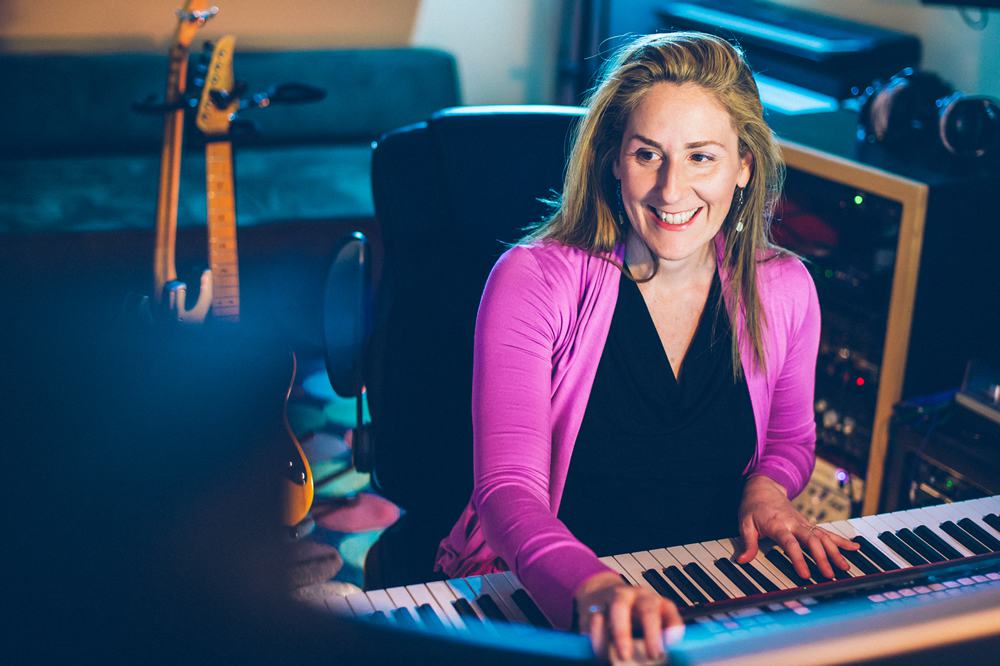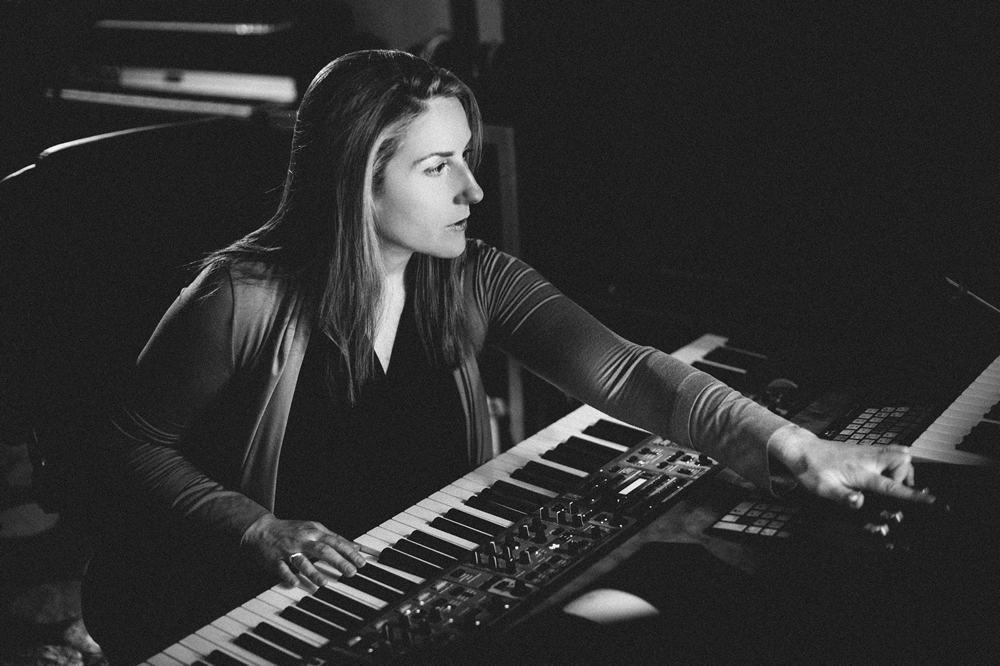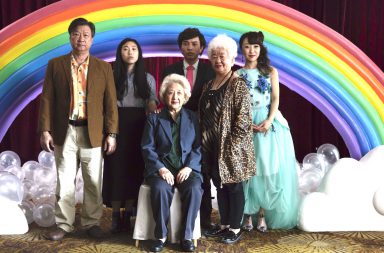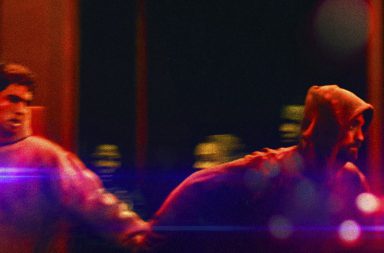From the big screen to the small screen, the concert stage to the theatre stage, Ronit Kirchman is a truly unique force in the entertainment industry. An incredibly accomplished and versatile composer, she is also a successful singer, songwriter, music producer and multi-instrumentalist. Her uniquely broad stylistic palette and depth of creative collaboration lead her to be the first ever recipient of the Sundance Time Warner Foundation Fellowship in Film Music, amongst many other musical accolades.
Kirchman’s musical background stems from an early age. Indeed, she started playing the violin age 4, training with some of the world’s finest. A talented musician, she plays a range of instruments including the electric 7-string violin—’The Viper’—whose range and originality is emblematical of it’s owner. Kirchman’s impressive film score work includes Zen and the Art of Dying, Finding Neighbours, and The Skin I’m In, and her playing as a soloist can be heard on Now You See Me, The Finest Hours and the Emmy-nominated Ring of Fire.
http://https://www.youtube.com/watch?v=ZEfnpFuzxnE
Today, we are talking to Ronit Kirchman about her latest work on USA Network’s binge-worthy thriller The Sinner, starring Jessica Biel and Bill Pullman. The show follows the story of a young mother who commits a horrific act of violence and much to her and to the detectives’ surprise, doesn’t know why. The show’s nail-biting pilot premiered on August 2.
Score It Magazine: Can you tell us about how you originally became involved scoring The Sinner?
Ronit Kirchman: I got involved at the pilot stage, my friend Derek Simonds, the creator of the show, gave me the script. I read the pilot script and the book that the series is based on. We then started throwing around ideas in an informal way before there was concrete footage. Once there was footage I started creating the music.
So you really joined at the birth of the show.
Yeah, I really did. It’s almost a luxury when you’re able to get on board so early because although the final score only really materialize when you have the real footage, you are there, at its birth. I enjoy it that way because I felt like the universe of the story becomes second nature. I’ve been simmering in it. It’s germinating in your subconscious for longer.
The score is a brilliant juxtaposition of delicate whimsical sounds (‘Hover’, ‘Glaciers Shifting’) and unsettling layers of electrical synth. What was your intended effect and how did you achieve it?
We are actually still in the midst of scoring the show, which continues to evolve. I think of composing as more of a spectrum. Certain parts of that musical spectrum are more pronounced in one episode than in another. Thinking about it in terms of focus and temperatures helps a lot. Some of those synth sounds are colder, unsettling and more clinical. The string and orchestral sounds bring a warmth and a humanity to the situation. Even with all those instruments I feel like we are trying to keep those textures moving in a subtle way within themselves. So it’s not so straightforward. Micro-harmonic shifts within a texture really interest me. I think when we hear those things we tune in emotionally more closely to the performances. Since the performances are very strong, I can be in a position of holding space for them.
We did remark that religion is a very important theme in the series. How did you evoke this through the music?
It’s a team attitude of not wanting to not overstress the material, letting it speak for itself. I’m steering away from direct religious music references and more going for the emotional role it plays in the life of Cora (Jessica Biel).
You are also composing a comedy score for Brian Gattas’ Crunchinox which premiered at Outfest this July. How does composing for comedy differ to composing for a drama-thriller like The Sinner?
I’ve actually composed quite a few comedy scores and it’s definitely a different mode. Fundamentally, the activity is the same, you are serving the story. In terms of the concrete compositional activities, it does feel different. In a comedy, the way the timing and pacing interact is different to a drama. Getting a jokes to land is part of the music’s job. Obviously, harmonically the choices are going to be different. You have to be in a certain kind of receptive mindset to hear and appreciate the intricacies of textures you find in The Sinner. In a comedy, it’s not that you aren’t accessing serious harmonies but they are contextualized in a different way. I definitely laugh more when I’m scoring a comedy! In The Sinner, we are really thinking out of the box, genre-wise. I’m consciously looking for unexpected ways of expressing things musically. In comedy, however, the ability to embrace certain conventions can be really funny.
Do you prefer scoring comedy or drama?
I love the variety, I really do. If you look at our lives as emotional beings, it’s great to have a lot of emotional richness and variety of experiences. So, as a composer, I like to have that same kind of richness. Writing music with different styles, genres, and also just with a different attitude, is very freeing.
In addition to the violin, you play an electric 7-string violin. How did you come to play such a unique instrument like this one?
As a composer, I play a lot of different instruments. I sing, I play the guitar, anything with strings is a friend! This does come in handy during the composition process, as it brings to life a lot of ideas in a very personal way. However, I do also love working with large ensembles. My 7-string violin is called ‘The Viper’, and, as a composer, I enjoy having that extra range that you wouldn’t get with normal violin. The world of processed sounds really opens up when you’re using an electric instrument. Using a bowed instrument over a keyboard gives an immediacy to the gestures that would be hard to replicate otherwise.
You compose music for film and television, theatre and dance, multimedia installations, and the concert stage. Is it a challenge scoring for such a broad spectrum of artistic domains?
For me, it feels very natural. I enjoy the challenge. It keeps me awake culturally. It’s important for me to have different outlets, different kind of collaborations and also a place where my voice and my story is THE story. Motherhood definitely was a transformation of consciousness for me, the line between ‘my story’/‘your story’ kind of dissolved.
What was your favorite project to score for and why?
One that brings together some of my personal live performance and scoring is the wonderful and under-appreciated documentary that I scored in 2012, The Skin I’m In. I had the opportunity to create a score with hybrid orchestral and electronic writing where both components were very vital. I also loved working with the director Broderick Fox.
I have a serious interest in what I call ‘Remix anatomy’: I bring scores to life through live performance in a remixed way and the narrative of the story is remixed. The musical materials are remixed through both acoustic rewriting as well as electronic programming. I’m really into the idea of modular spontaneity where there is a timeline to give structure, but within each section there is flexibility.
What was the most challenging project you scored for?
Every time I start composing a new score, no matter how many times you do it, it seems like a mountain to climb. In that respect, they are all the most challenging at that point. But the thrill of that challenge is why I keep coming back.
Do you have the time to watch any TV shows? If yes, is there one that stands out, musically speaking?
Right now, I don’t have much time to watch TV! I will mention one where I thought the music supervision was really great: Big Little Lies (supervision by Sue Jacob). The way songs are the anchors of the show really is very cool and effective. I did also really enjoy the flavours the Stranger Things composers (Kyle Dixon and Michael Stein) brought to the show. It’s the perfect score for the period and style, it gives it a sensory layer which I think is a really important part of the show.
How do you see the future for female composers in the film music industry?
It certainly is a bright future. I hope I’m doing everything I can to help that become a reality. The numbers are quite shocking, they are below even the number of female directors. This is obviously not reflective of the number of female composers that can do the job. But, I am hopeful because I feel like there is a shift in people’s willingness to talk about it. When I first started, people tended to dismiss the topic. People would just say ‘composing is something women just aren’t interested in’. This would somehow satisfy people enough and they move on. Now, finally, people aren’t satisfied with that answer.
The Sinner premiered August 2 on USA Network and you can catch up with the first episode here.
Interview prepared by Amalia Morris and Priya Matharu.
Conducted by Priya Matharu.
Edited by Marine Wong Kwok Chuen.





